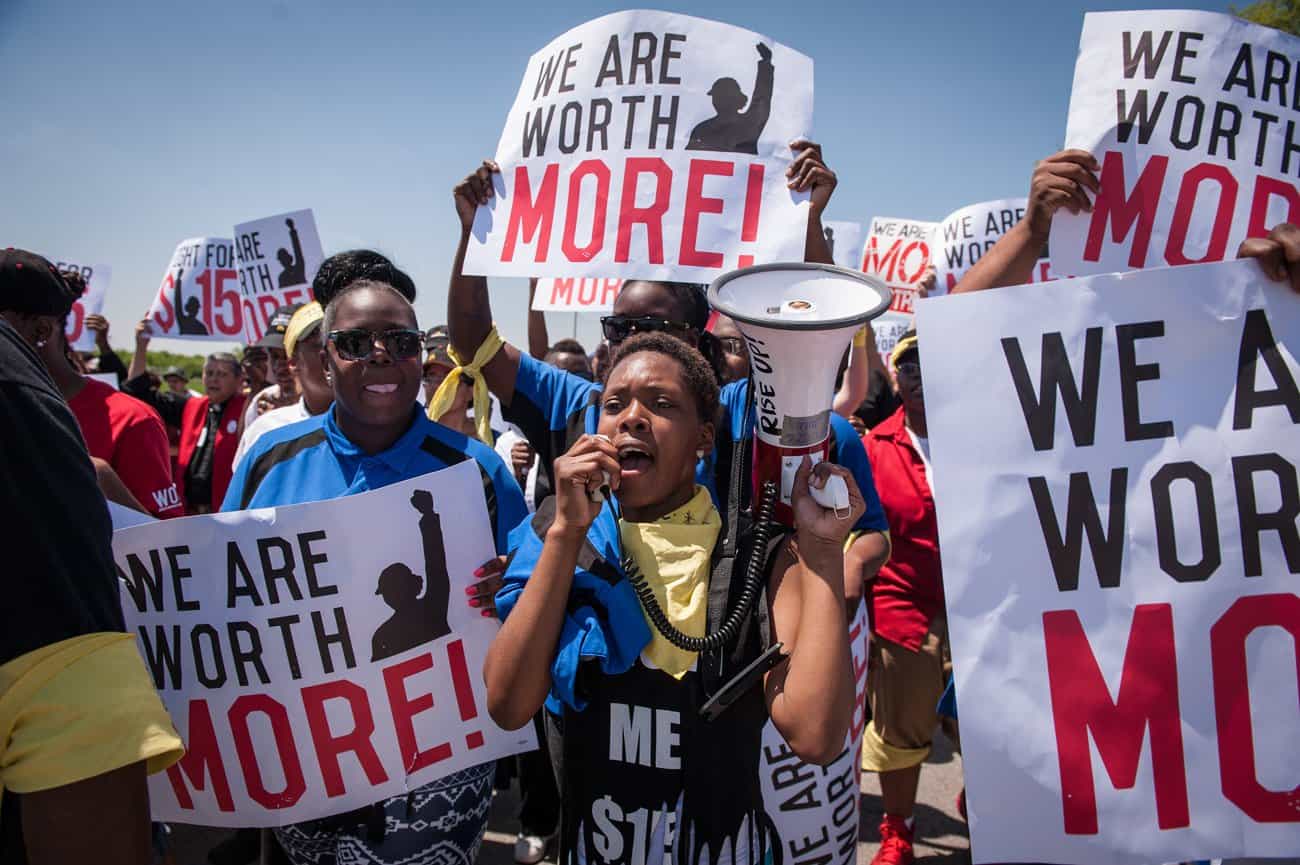Lolita De Palma is a student at Harvard Law School.
Jacobin exposes the harsh reality of farmworker exploitation in New York. Left out of the collective bargaining protections accorded other workers by the New York State Constitution, farmworkers could not challenge dangerous working conditions without fear of retaliation. However, the New York legislature recently passed the Farm Laborers Fair Labor Practices Act (FFLPA), providing some collective bargaining protections for farmworkers—but not the right to strike or engage in a slowdown. Organizing efforts by groups like the Justice for Farmworkers Campaign have been successful in building trust among dairy workers in New York. On the other hand, the local food movement has done more harm than good despite its claims of supporting local farmers. Praising the local farm economy has masked poor labor conditions and done little to encourage alternative farming practices.
A Wall Street Journal article blames weak wage growth on workers’ reluctance to switch jobs. “The biggest reason for wage rises is competition, either actual turnover or the threat of turnover,” economist Chris Pissarides says. Workers who have outside offers can demand higher wages. This incentivizes employers to pay higher wages to all of their employees in order to retain them. However, the combination of the financial crisis, increased regulation, and an aging population has made workers more risk-averse and less willing to seek other offers. The Hill, on the other hand, blames an overabundance of low-wage service jobs for wage stagnation. Most of the production and supervisor jobs created in recent years have been low-wage and low-hour, causing American income levels to fall despite low unemployment.
The Washington Post evaluates Democratic presidential candidates’ stances on economic policy, based on their statements, voting records, and questionnaire answers. Kamala Harris, Bernie Sanders, Andrew Yang, and Cory Booker are all in favor of more than twelve weeks of paid family leave for workers. All the candidates besides Andrew Yang and Michael Bennet support raising federal minimum wage to $15 per hour.
Insider spotlighted eight non-union worker organizations that have used collective power to secure better wages and working conditions. The Coalition of Immokalee Workers engaged in boycotts and hunger strikes in the early 2000s to pressure Taco Bell into improving the wages of farmworkers. Since 2007, the National Domestic Workers Alliance has used its lobbying efforts to convince states like New York and Illinois to pass a Domestic Workers Bill of Rights, guaranteeing overtime and sick pay to domestic workers.
As Sejal already reported, teachers in Little Rock, Arkansas, went on strike this past Thursday to protest Arkansas’s takeover of the district. The teachers may strike again this week or participate in a “work to rule” action in which they refuse to work extra hours. Little Rock Education Association President Teresa Knapp Gordon said, “We’re going to continue to fight until we get a democratically elected school board with full decision-making authority.”






Daily News & Commentary
Start your day with our roundup of the latest labor developments. See all
January 29
Texas pauses H-1B hiring; NLRB General Counsel announces new procedures and priorities; Fourth Circuit rejects a teacher's challenge to pronoun policies.
January 28
Over 15,000 New York City nurses continue to strike with support from Mayor Mamdani; a judge grants a preliminary injunction that prevents DHS from ending family reunification parole programs for thousands of family members of U.S. citizens and green-card holders; and decisions in SDNY address whether employees may receive accommodations for telework due to potential exposure to COVID-19 when essential functions cannot be completed at home.
January 27
NYC's new delivery-app tipping law takes effect; 31,000 Kaiser Permanente nurses and healthcare workers go on strike; the NJ Appellate Division revives Atlantic City casino workers’ lawsuit challenging the state’s casino smoking exemption.
January 26
Unions mourn Alex Pretti, EEOC concentrates power, courts decide reach of EFAA.
January 25
Uber and Lyft face class actions against “women preference” matching, Virginia home healthcare workers push for a collective bargaining bill, and the NLRB launches a new intake protocol.
January 22
Hyundai’s labor union warns against the introduction of humanoid robots; Oregon and California trades unions take different paths to advocate for union jobs.